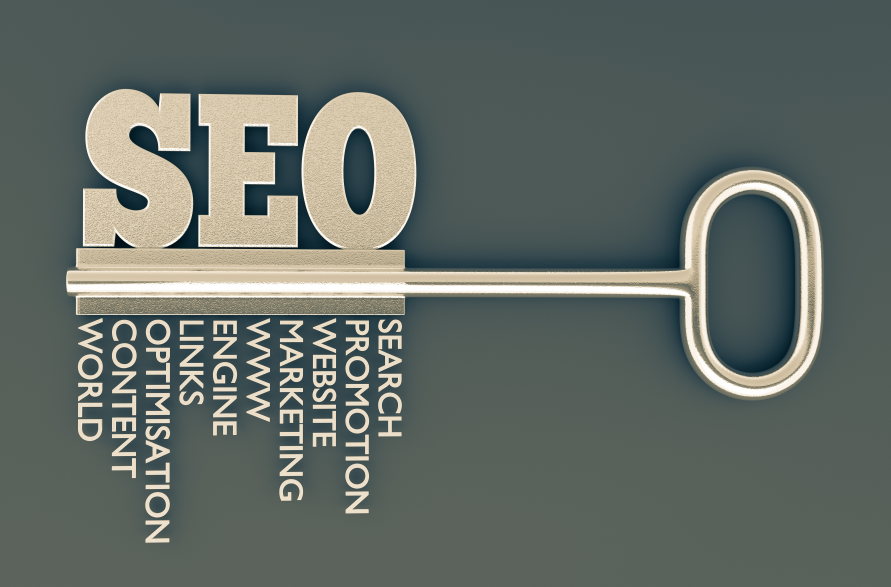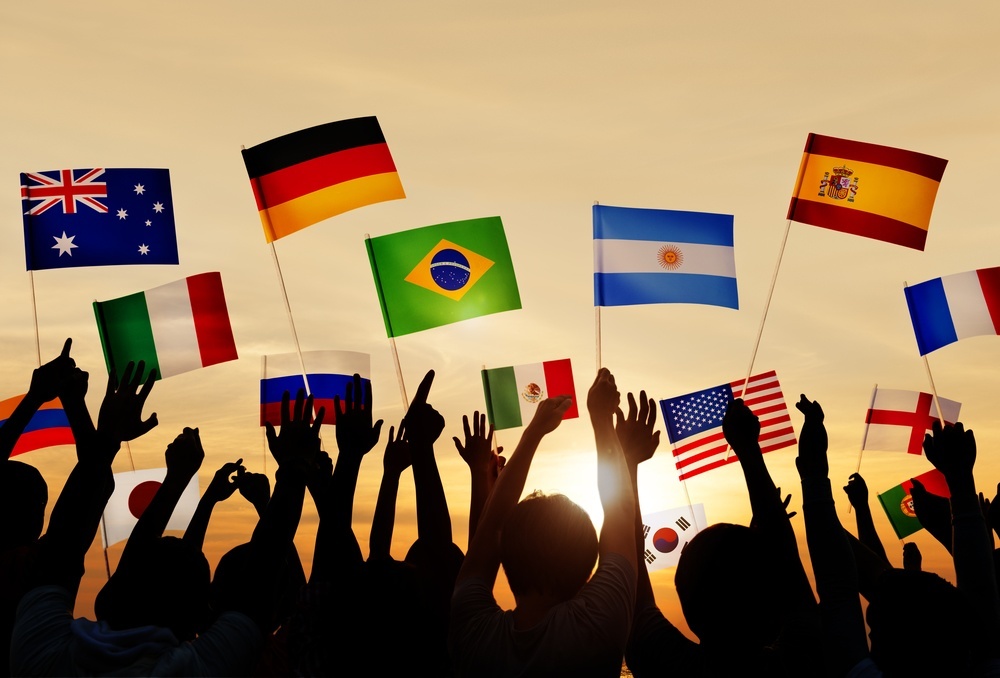This is the most frightening time of year. Almost one month before the most important date for e-commerce, Halloween floods social networks, shops and apps.
Category: SEO Translation
Translation-ready texts: the secret to success
You’ve got a big project, a text that your blood, sweat and tears have gone into, and which works perfectly for your local audience. You’d go as far as to say it’s been a big hit. But, have you thought about how to prepare this text for translation?
Resources for Translators
All freelance translators have at some time experienced that feeling of sitting at a computer, staring at a text, fingers hovering the keyboard ready to work… but your mind is blank. But don’t worry, there are plenty of resources out there to help you out with that blank screen!
SEO strategies that you must learn about
What is SEO?
SEO is the acronym for “Search Engine Optimisation”. It is an internet marketing strategy which uses search engines and affects the process through which it increases a web page’s visibility on the results of the search engine. Meaning that a website or a web page will appear higher on the search results of a search engine (like Google or Yahoo).
Translating Content Marketing
What is Content Marketing?
We can understand what translation is, and everybody knows what is meant by marketing. But what about content marketing? What is the difference between this and plain marketing? According to the Content Marketing Institute “Content marketing is a marketing technique of creating and distributing valuable, relevant and consistent content to attract and acquire a clearly defined audience – with the objective of driving profitable customer action.”
Can I get my corporate blog translated?
These days a corporate blog is a widely-used means of generating quality content of interest to our target audience. Blogs contain keywords of popular Google searches and can be about pretty much any topic under the sun. The trick is that they be an interesting read in their own right, thereby attracting the type of potential customers that we want (in the case of a business), but also that they appear high in search-engine rankings by virtue of the use of keywords.
Transcription Services to Boost your Business Profile
Translations have allowed companies to grow like never before, and the profession is constantly expanding and evolving in order the meet the demands of clients from all across the world. One stand out example is the presence of videos across the internet, particularly on social media, which has led to a higher demand for audio and video transcriptions.
These days, people are more aware than ever of the importance that good language practice can have in terms of developing their business. Translations have allowed companies to grow like never before, and the profession is constantly expanding and evolving in order the meet the demands of clients from all across the world. Indeed, an increasing amount of companies are adapting their services to respond to the evolution of new media. One stand out example is the presence of videos across the internet, particularly on social media, which has led to a higher demand for audio and video transcription services.
More and more companies have been tapping into this; not just because the use of transcription allows for greater accessibility in the online global marketplace, but also because videos provide an excellent opportunity to boost a company’s SEO. For pages that produce longer videos, the advantages are even greater. Longer videos logically contain a larger transcript, which gives businesses a huge opportunity to target additional keywords in various languages.
Something for everyone
The benefits of transcription aren’t just reserved for e-commerce, where good SEO is always a priority; several studies conducted by a range of companies, including Discovery Digital Networks, SafeNet, and even the radio show This American Life have proven that adding subtitles and transcripts to videos can increase search traffic, page views, search rank, and engagement. A similar study by LiveClicker compared 37 web pages before and after adding transcripts. Pages with transcripts earned on average 16% more revenue than they did before transcripts were added.
Satisfy your clients
In addition, these pages also have an opportunity to increase customer satisfaction when they enlist the help of a transcription service. For example students, researchers, journalists or anyone else who’s looking for a particular moment or quote within a video will no longer have to trawl through minutes or even hours of footage just to find what they’re looking for. It’s all there, fully transcribed and easy to locate.
Clients with hearing difficulties are also accommodated for, and will appreciate a service that is not always available to them from other businesses and media outlets. Transcribing your video opens your business up to an audience of millions of people throughout the world who rely on this kind of service to make their multimedia experience worthwhile.
There are a number of reasons why businesses or individuals could require a transcription or captioning service. Whether you’re looking to provide your customers with greater satisfaction, someone requires a written copy of your video or audio file, or you want to use your content in new ways to spread your message to a wider audience and increase your SEO, transcription and captioning can provide innumerable advantages to you and your company.
Difference Between SEO Translation and Localisation
Many people think that localisation and SEO translation are basically the same thing – if you fall into this category of ‘many people’, then we suggest that you think again! While they are both types of translation, they each have different purposes, and most companies look for translators or translation agencies who can provide them with both of these types of translation as it helps to increase their business globally.
Localisation
Many people think that localisation and SEO translation are basically the same thing – if you find yourself in this category of ‘many people’, then we suggest that you think again! While they are both types of translation, they each have different purposes, and most companies look for translators or translation agencies who can provide them with both of these types of translation as it helps to increase their business globally. The majority of translation agencies will only provide you with localisation, which is why agencies such as BigTranslation are so valuable as they also specialise in SEO translation. Let us now make the distinction between these two processes by starting with localisation. Localisation is a process which involves us adapting a text to make sure that it is culturally and linguistically appropriate for the target audience, most often used for website translations. This focuses on the more human aspect of translation as the target text will be received by a completely different culture, therefore native professional translators are often needed to carry out this kind of translation process, ensuring it has the same effect on the target audience as the source language audience. A good example of this is the translation of brand names; a good brand name in one language might be hilarious in another if translated literally (E.g., an Iranian soap product line is called ‘Barf’, which actually means ‘snow’ in Farsi, but becomes ‘vomiting’ in English). They could also be considered offensive or ridiculous: the Ford ‘Pinto’ means ‘penis’ in Brazilian Portuguese and the Rolls Royce ‘Mist’ would be ‘manure’ or ‘dung’ in German. Similarly, one excellent marketing slogan in one language could become a total disaster in another. An example of this is when American Airlines translated their slogan ‘Fly in Leather’ literally to ‘Vuela en Cuero’ in Spanish. The problem with this is that ‘Vuela en Cuero’ would actually be interpreted by Spaniards as ‘Fly Naked’ as it is a set expression in Spanish. This is precisely why it is important to have a native translator of the target language to make localisation possible and ensure that a text is translated in such a way that it is familiar and appealing to the target culture.

SEO Translation
Whilst localisation has the purpose of appealing to humans of a particular culture, SEO translation is different in the sense that its target is internet search engines. ‘SEO‘, as it is simply referred to, is essentially a ‘behind the scenes’ option which ensures that your products and services have search engine visibility in the target country. Every single attribute on a web page such as keywords, expressions, tags, titles, metatitles and anchor texts should be translated in order to make the web page attractive to search engines in the target language. In this sense, SEO is a requirement for the best quality translation of web content, as you want your site to pop up as one of the first options when people of a foreign culture type in keywords related to your site. The best way to ensure that your website is ranked well in all of the international markets that you are targeting is to have each of your website’s SEO elements carefully translated by experts with experience in the field of multilingual SEO. This will increase the global reputation of your business, result in additional customers and of course increase the amount of sales. In order to make a web page appeal to a wide range of clients and acheive the best quality, businesses should employ translators who specialise in both SEO translation and localisation. For example, you may have the best localisation in the world but if your page does not appear towards the top of the list in search engines it won’t be able to gain much visibility or popularity, decreasing the amount of site visitors and potential clients. Similarly, SEO translation alone would not be sufficient; if your localisation is bad, users will find your site quickly but will abandon it even faster. Visitors may have a good laugh if your slogan says that you are willing to fly naked, but it won’t necessarily give you many customers.
Overall, it is clear that SEO translation and localisation are two different concepts, however it is vital to rely on translators and translation agencies who are able to offer both of these. It isn’t easy to strike the balance between a good sales pitch to human customers and search engine optimisation. Many webmasters will request a translation from a good localisation professional first and then turn to a separate SEO specialist, which can work out to be quite expensive. Unlike traditional translation agencies, BigTranslation is capable of offering both SEO translation and localisation services. This is thanks to our carefully-selected network of translators that have strong training in international multilingual SEO. Our professional translation service guarantees to maximise the search engine visibility of websites and increase the amount of its users or clients.
SEO Translation in Travel and Tourism
Translation agencies and companies who specialise in SEO and website translation, such as BigTranslation, thrive on offering their services to clients in the Travel and Tourism sector. This will surely continue to flourish as more and more languages across the globe become more in demand amongst translation agencies and the internationalisation of companies increases.
Travel and Tourism: An Indispensable Industry
If there is one sector which requires the translation of texts the most in order to guarantee success, it is without a doubt the travel and tourism sector! As the whole nature of the industry is based on reaching out to all languages and cultures in order to encourage people to travel across the globe, it follows that the facilitation of communication and translation of texts is an essential part of this process. Hotel websites, brochures, magazines, tourist guides and restaurant menus are just a few examples of the copious amount of documents which require translations in this industry. Translation agencies and companies who specialise in SEO and website translation, such as BigTranslation, thrive on offering their services to clients in the Travel and Tourism sector. This will surely continue to flourish as more and more languages across the globe become more in demand amongst translation agencies and the internationalisation of companies increases.

Multilingual SEO: A Travelling Tool
One aspect which enables the expansion of the Travel and Tourism sector in particular is the use of SEO translation in travel and tourism websites. Many clients expect that the translation services they pay for will include multilingual SEO, as it has become such a necessary tool in this translation field. The more languages a translation agency can offer and the more it can expand a travel agency globally with SEO translation, the more likely it will be for them to gain work in this sector, as it is massively beneficial to travel and tourism companies. The first thing most people do when planning or booking a trip is turn to the internet; more often than not they will type in keywords and phrases in Google in order to quickly find what they are looking for. They will then be presented with a list of sites in their native language, and this is where SEO translation comes in. If translators are able to make their target text available to the desired audience through the use of specific words and phrases, the travel company is more likely to appear when certain words are entered into the search engine. One of the reasons it is also essential to use professional translators for travel and tourism websites is that companies need to be 100% sure of the site’s content before allowing customers to view information. Similarly, the customer will want to be certain that they understand the information they have read on the site before handing over their bank details or any kind of personal information. Particularly due to the cultural differences and clashes that can arise when translating from one language to another, it is essential that the translator of these texts is a native professional of the target language to guarantee accuracy of meaning and to avoid misunderstandings for the clients.
The translator of travel and tourism websites will essentially act as the representative of the company abroad, in an attempt to attract as wide a target audience in their native language as possible. For this reason, many travel and tourism companies only employ translators who specialise in this particular translation field, as they need to be familiar with the style of language used in order to attract customers and to increase the SEO of the company. At BigTranslation, our expertise in website translation and SEO translation, along with our large team of native professional translators who specialise in various different fields, we are an ideal translation agency for globalising travel companies and giving them the perfect translation quality they need!
Good SEO Translation: More Than Meets The Eye
From the high street to the online world, globalisation is undoubtedly upon us. Every day, more and more companies are going international, with eLearning, software, consumer goods and high tech industries among the fastest growing online markets. Even for an inherently global profession such as translation, the last few years have been huge in terms of its expansion into the worldwide marketplace.
From the high street to the online world, globalisation is undoubtedly upon us. Every day, more and more companies are going international, with eLearning, software, consumer goods and high tech industries among the fastest growing online markets. Even for an inherently global profession such as translation, the last few years have been huge in terms of its expansion into the worldwide marketplace. Indeed, a recent spike in Google searches and blog posts about international SEO translation shows that people are becoming increasingly aware of the importance of good language practice to the success of their business.
However, translators themselves would be mistaken to believe that an accurate SEO translation in itself is all that’s needed for their work to reach its full potential. While SEO translation is one of the latest and most efficient methods of optimising your online business results, it is not always enough if you want to speak to your potential clients in a language they truly understand.
Any of us who have spent any time in the translation field are aware of the basic practices to avoid. Relying on translators who are competent, but not native speakers of the target language comes with a considerable amount of risk. Furthermore, using automated translators such as Bing or Google Translate is even more perilous. As a Scot living in Europe, I’m always reminded of one particular translation of Robert Burns’ Address to a Haggis. The poem is customarily read before the cutting of the Haggis before a meal, and contains the line ‘Great chieftain o’ the pudding-race!‘. It was once translated into German for a Burns event in Berlin, and then independently translated from the German back into English. This ended up with the rather curious description of our national dish as the ‘Mighty Führer of the Sausage People‘.
time in the translation field are aware of the basic practices to avoid. Relying on translators who are competent, but not native speakers of the target language comes with a considerable amount of risk. Furthermore, using automated translators such as Bing or Google Translate is even more perilous. As a Scot living in Europe, I’m always reminded of one particular translation of Robert Burns’ Address to a Haggis. The poem is customarily read before the cutting of the Haggis before a meal, and contains the line ‘Great chieftain o’ the pudding-race!‘. It was once translated into German for a Burns event in Berlin, and then independently translated from the German back into English. This ended up with the rather curious description of our national dish as the ‘Mighty Führer of the Sausage People‘.
While perhaps an extreme example of why it’s a good idea to avoid using Google Translate for anything, it’s not the only way that a poor translation can lose an audience. One thing that SEO translations often fail to take into account is the importance, or even the existence of, a target culture – as well as a target language. In this case, what’s needed is a touch of Cultural Consulting.
The overall point here is that, even within the same language, there are a number of cultural factors that have to be taken into account. The same concept therefore applies to business translation. In terms of SEO translation, getting the site architecture, page titles and keywords correct is, of course, extremely important. However, if you neglect the cultural side of things, the translation will never reach its full potential.
In a world where translators have deadlines repeatedly thrust upon them at short notice, they often focus too much on just getting the SEO details right before sending their translations off again. As a result, what really makes a translation palatable for your clients can be easily overlooked. The world may be bigger and more anonymous now than it has ever been, but if you’re thinking about entering the global marketplace, it’s important to choose a language service company that understands what makes your target audience’s culture unique among the rest.










